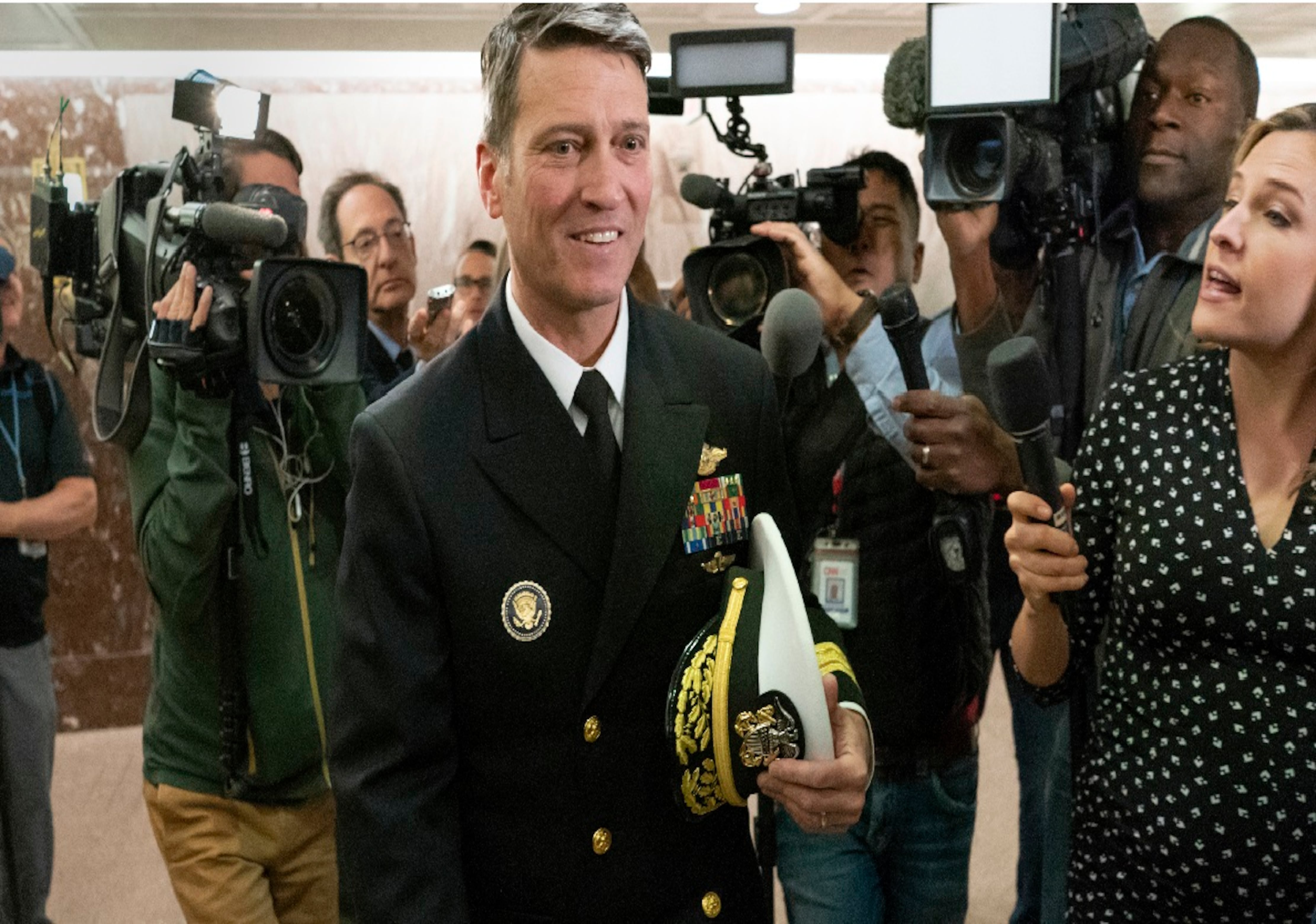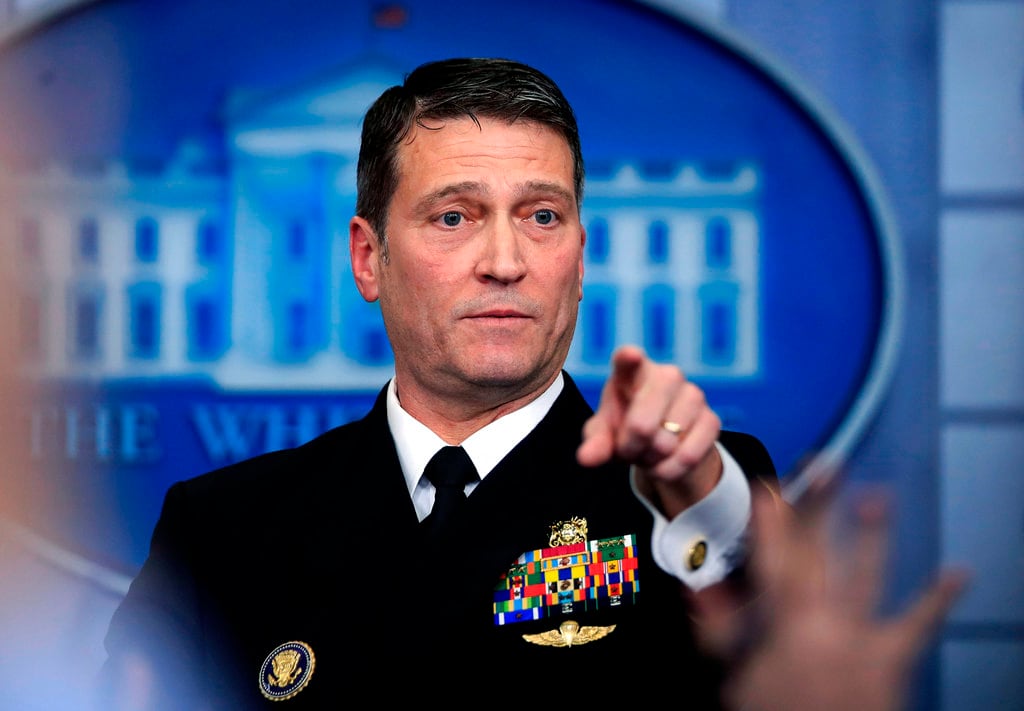WASHINGTON — Defense Department officials have opened a formal investigation into the conduct of former White House physician Rear Adm. Ronny Jackson, following allegations of unprofessional behavior during his bid to become Veterans Affairs secretary earlier this year.
Jackson, a 23-year naval officer who still works in the White House Medical Office, has kept a low-profile since withdrawing from consideration for the Cabinet-level post in late April.
That move came amid allegations of on-the-job drinking, improper handling of prescription drugs and abusive behavior towards subordinates from whistleblowers who reached out to senators in advance of planned confirmation hearings.
A spokesman for the Department of Defense’s Office of Inspector General confirmed Monday that officials have initiated an investigation into those charges, to see whether any punitive actions against Jackson may be warranted.
RELATED

In a statement on April 26, Jackson insisted that the allegations were “completely false and fabricated” by political opponents.
“If they had any merit, I would not have been selected, promoted and entrusted to serve in such a sensitive and important role as physician to three presidents over the past 12 years,” he said.
But the reports drew criticism from both Democrats and Republicans on Capitol Hill over whether Jackson had the right demeanor to serve as the head of the nearly $200-billion federal department, and whether the White House had properly vetted Jackson for the high-level post.
Jackson was a surprise pick for the VA secretary job following the firing of David Shulkin in March, after months of administration infighting over his policy stances and handling of a travel scandal last summer.
President Donald Trump announced Jackson’s nomination over Twitter, praising him as an honorable man who would help reform problems within VA.
But veterans groups and lawmakers questioned Jackson’s knowledge of veterans policy issues and VA’s complex bureaucracy, noting his lack of experience with either.

White House officials pushed back against those charges, saying Jackson served three presidents and received glowing reviews from each. They also insisted they had no knowledge or proof of whistleblower allegations leveled against Jackson.
Those charges — detailed by Senate Veterans’ Affairs Committee Democrats — included accusations that Jackson wrote false prescription orders for himself and others, undermined superiors and subordinates to cover his mistakes, and frequently drank while on duty, one time crashing a government vehicle while intoxicated.
White House officials had no comment on the new inspector general investigation announcement. Jackson returned to the White House Medical Office after his withdrawal from the confirmation process but was not renamed the top White House doctor.
Despite working for three different presidents, Jackson was largely unknown until a press conference earlier this year where he offered a positive assessment of Trump’s health, praising the commander-in-chief’s “incredible genes” and noting “if he had a healthier diet over the last 20 years he might live to be 200 years old.”
Defense officials have not said what penalties Jackson may face if he is found guilty of unprofessional behavior, or what recourse he might have if he is cleared of the charges.
Last month, Trump announced plans to nominate Robert Wilkie, the Pentagon’s undersecretary for Personnel and Readiness, to be Jackson’s replacement as the next VA secretary. Wilkie served as acting VA secretary during Jackson’s controversial nomination.
Leo covers Congress, Veterans Affairs and the White House for Military Times. He has covered Washington, D.C. since 2004, focusing on military personnel and veterans policies. His work has earned numerous honors, including a 2009 Polk award, a 2010 National Headliner Award, the IAVA Leadership in Journalism award and the VFW News Media award.





